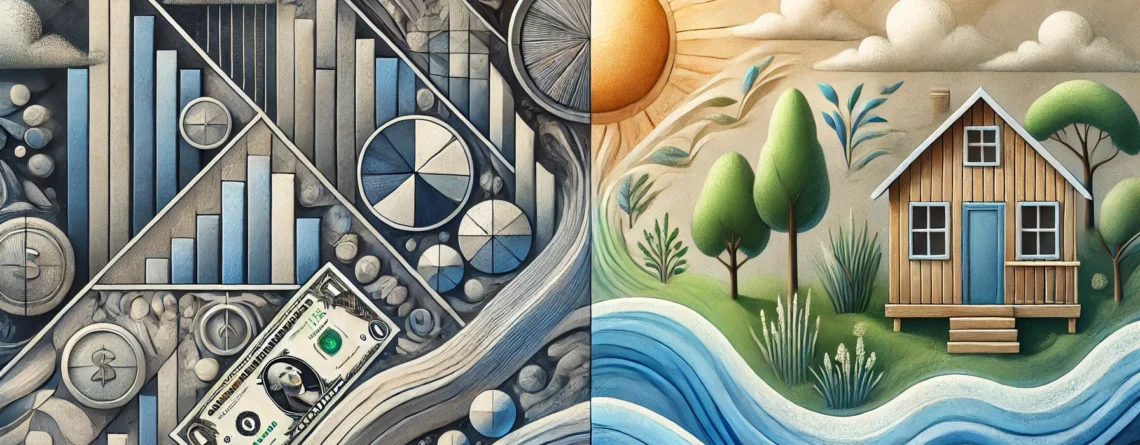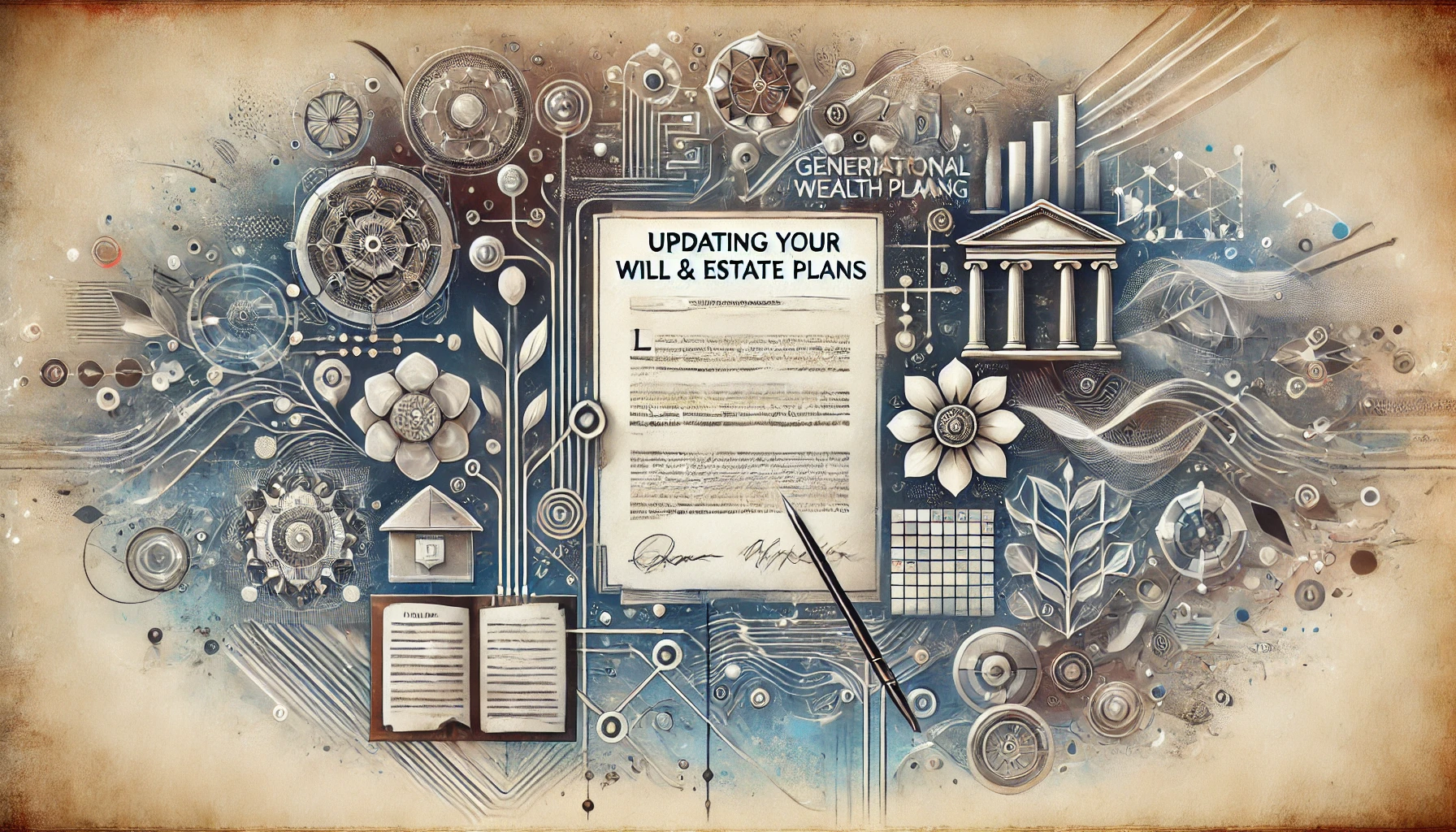The True Cost of Cottage Ownership: Finances vs. Feelings
Imagine waking up to a serene lakeside view, the whispers of the wind through lush greenery, and the promise of a tranquil retreat away from the hustle and bustle of daily life. However, the allure can sometimes be deceptive. This post will describe two ways to consider a cottage ownership: financial and emotional. On one hand, prospective cottagers will need to assess the financial costs of owning a cottage. On the other hand, they’ll need to assess whether they have the time and temperament to manage this type of property.
Before we begin, let’s put your financial knowledge to the test. Try out our free financial literacy quiz and see how you stack up!
Understanding the Expenses of Acquiring a Holiday Home
Consider a scenario where the price tag on a holiday home is $5,000,000. Regardless of whether you opt for an outright cash payment, secure a mortgage or home equity line of credit, or perhaps employ a blend of both, there are additional expenses that come into play.
When you use cash to purchase a cottage, you’ll still face the opportunity cost of not channeling that money into an alternative investment. Conversely, if you take a loan, you will be subject to interest rates. For simplicity, let’s use 5% as a figure for either opportunity or financing cost.
Furthermore, you must account for property taxes, utility bills, insurance premiums, condominium fees, and maintenance expenses, which can collectively contribute an extra 2% to 4% annually. Scenarios, like an aging cabin or property with luxury features and elevated fees, this percentage could be higher. However, for the sake of this discussion, let’s approximate it at 3% yearly.
Cumulatively, the expenses could come to 7.5% annually, which translates to $375,000 each year for our hypothetical $5 million holiday home or $37,500 on a more modest $500,000 place.
If you are in need of guidance or have any questions, feel free to contact us or fill out this free assessment questionnaire to determine if our family office services can help you efficiently manage your wealth!
Anticipated Financial Gains from Holiday Homes
But what about the economic benefits? As of December 31, 2021, Canadian real estate values have witnessed an annual growth of approximately 8.2% over the preceding decade. Over a span of 30 years, this figure averages around 5.8%. However, it’s important to note that real estate trends have varied widely across different regions, and a noticeable slowdown occurred in 2022.
In the United States, historical data suggests that property prices have marginally outpaced inflation. In fact, since the year 1890, American real estate has grown at a rate merely 0.4% higher than inflation annually. Keeping in mind the Bank of Canada’s inflation target of 2%, a more pragmatic long-term annual growth rate for property might be 2% and 4%.
So, assuming our hypothetical property appreciates at a rate of 3% per year, the value would increase by $150,000 in the first year. Consequently, the net expense in the first year of ownership is 7.5% (or $375,000) minus 3% (or $150,000), which equals 4.5% (or $225,000). So, no matter how much you pay for your cottage property. Expect it to cost 4% to 5% per year to carry. Don’t forget, the capital in your cottage could be used for other income generating purposes.
Renting vs. Buying: What’s the Best Choice for a Cottage?
When contemplating the purchase of a $500,000 cottage or a $5 million cottage and assuming the above figures are realistic, you need to evaluate whether the utility derived from the property justifies the annual net cost. Is it possible to rent a similar property for less than what is will cost to service a property you own yourself? Certainly, renting a cottage occasionally will mean a lot less work and responsibility.
However, it’s crucial to recognize that there are intangible benefits associated with owning a holiday home too and not every decision should be solely financially driven.
If you do not have an investment strategy, try out our free investment policy generator for some personalized guidance!
When Your Heart is Set
For many prospective cottagers, the dollars and cents of whether to buy or rent a cottage are secondary to the way a cottage will make them feel. Of course, a morning coffee on the dock, BBQ with family & friends, and a hike in the woods are all wonderful activities.
But we should remember to balance the joy of cottage ownership with the hard work and responsibility that goes into owning it. If you live a few hours drive from your cottage, you won’t be able to be present every time maintenance and repairs need doing. This means you’ll need to rely on a local workforce of service providers you can trust to do a good job. As many cottagers know, saying this is easier than doing it.
Most cottagers know it takes a lot of work to maintain a well functioning cottage. If you like amenities like electricity, potable running water, internet access, and other modern conveniences. These will come at a cost. And oftentimes, the time it takes to maintain and repair a cottage will outweigh the time you can spend enjoying it.
However, the simpler the cottage, the easier maintenance becomes.
So, while you must consider your cottage’s financial budget, you should also assess the time commitment you can make and the expertise you need to maintain your cottage effectively.
Cottage Ownership
Navigating the waters of cottage ownership is as much an exercise in financial prudence as it is in understanding one’s personal needs and temperament. As we’ve seen, there’s no denying that owning a holiday home comes with considerable financial obligations. From the annual expenses to opportunity costs, the $500,000 or $5,000,000 price tag is just the beginning of the investment. Yet, it is also important to remember that these properties can appreciate over time.
Beyond the numbers, cottage ownership asks for more than just a financial commitment. It requires a dedication of time, energy, and sometimes, patience. The rustic charm of a cottage nestled in nature’s lap can often translate into a demanding project requiring continuous maintenance, upgrades, and supervision.
Nevertheless, the intangible benefits – the joy of hosting family gatherings on the dock, the tranquility of nature, the prospect of creating cherished memories – these are invaluable returns that don’t show up on a balance sheet. They tug at the heartstrings and often tip the scales towards ownership.
So, whether you’re contemplating an investment in a holiday home, or simply daydreaming about a serene lakeside retreat. Remember to consider both the financial and emotional implications. The decision to buy a cottage isn’t a simple yes or no proposition. It’s a complex equation where personal satisfaction and financial practicality must both be considered. It’s a journey that asks for meticulous calculations, heartfelt introspection, and ultimately a decision that enriches your life in more ways than one. For support in managing your property’s financial needs, click here to learn more about how we can assist you.
Don’t forget to subscribe to our free newsletter for valuable insights delivered monthly.





Leave a Reply